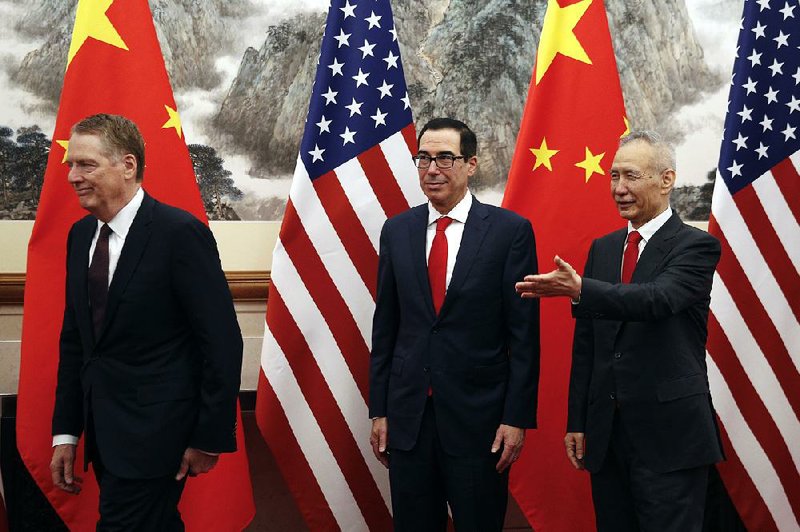WASHINGTON -- Trade negotiations between the United States and China are entering the final stage, but a deal is expected to fall short of addressing several key goals of President Donald Trump's administration, including combating Chinese cybertheft and state subsidies at various levels of the Chinese government, officials from a leading American business group say.
Trump has repeatedly insisted that a United States-China trade deal will address what he says is a pattern of China illegally gaining access to U.S. computer networks, as well as end economic practices like subsidies that the United States says give China an unfair competitive edge.
But Chinese negotiators have pushed back against discussing cybertheft in the context of the negotiations, arguing for the issue to be dealt with in a different forum, Myron Brilliant, the executive vice president and head of international affairs at the U.S. Chamber of Commerce, said Thursday in a call with reporters.
Brilliant said that outcome was "not a surprise." China has long disputed U.S. accusations that it systemically steals intellectual property from U.S. companies, and Chinese officials have maintained that the country has kept the terms of a previous cybersecurity agreement signed in 2015 with President Barack Obama.
The trade deal is expected to include renewed commitments from China to strengthen its protection of intellectual property, greater access to Chinese markets for firms in the automotive, banking, insurance and securities industries, commitments from China on increased transparency in how it manages its currency, and large purchases of U.S. products, including soybeans and natural gas.
But it is also unlikely to resolve U.S. concerns about China's industrial policy, including subsidies it provides to its industries. The text of the deal is expected to include some language on subsidy transparency, Brilliant said, referring to Chinese disclosure to the United States of the details of subsidies.
Along with giving Chinese firms a competitive advantage, subsidies encourage excess production that drives down global prices for products such as steel and aluminum, according to U.S. officials.
The Trump administration has complained about "Made in China 2025," a Chinese industrial policy aimed at building up advanced manufacturing industries like aeronautics, semiconductors and artificial intelligence. While negotiators have made progress on addressing subsidies at the national level, and in the context of addressing the Made in China 2025 plan, sticking points remain over subsidies at the provincial and local level, said Jeremie Waterman, president of the China Center at the U.S. Chamber.
"We appreciate the difficulty," Waterman said of dealing with China's subsidy practices. "We're not naive, but it's also a very important issue."
And while tech companies had been hopeful that the trade talks would address China's tight restrictions on data collected by U.S. firms inside its borders, that, too, seems to have been left out of the talks.
Brilliant, who is briefed by U.S. and Chinese officials, said the two countries are in the "end game" with regard to an agreement. But they continue to discuss issues, including China's cloud computing regulations.
The administration also appears likely to disappoint the U.S. pharmaceutical industry by accepting a Chinese proposal to provide less protection to a class of drugs known as biologics. U.S. companies would get eight years of regulatory data protection for biologics in China, compared with 10 years in the new North American trade deal and 12 years under U.S. law.
Both sides are still wrestling with measures to ensure China carries out promised purchases of American goods, as well as how and when the tariffs the United States and China have placed on each others' goods will be removed, he added.
Speculation has been running high that the United States and China are preparing to announce a trade deal to end tensions between the two countries, perhaps as early as next week. Robert Lighthizer, the U.S. trade representative, and Steve Mnuchin, the Treasury secretary, led a delegation of U.S. officials to Beijing earlier this week for a brief visit. The Chinese team, led by Vice Premier Liu He, will return to Washington next week with a delegation of more than 100 officials.
Officials from the chamber, which represents more than 3 million businesses, said the business community supported the administration's efforts to combat unfair economic practices from China, but they were also eager for a resolution that would remove the tariffs. The United States and China now impose tariffs on the bulk of products that move between their economies, increasing costs for businesses and consumers.
Information for this article was contributed by David J. Lynch of The Washington Post.
Business on 05/04/2019
